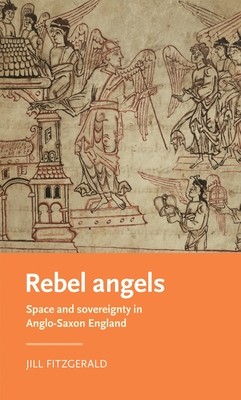
- We will send in 10–14 business days.
- Author: Jill Fitzgerald
- Publisher: Manchester University Press
- ISBN-10: 1526129094
- ISBN-13: 9781526129093
- Format: 13.7 x 21.8 x 2.8 cm, hardcover
- Language: English
- SAVE -10% with code: EXTRA
Reviews
Description
The Anglo-Saxons possessed a complex, ever-changing theory of the fall of the angels. This is the first comprehensive study of how early medieval authors transformed exegetical teachings about the angelic rebellion into a rich literary tradition, from the works of Bede to the Old English poems of the Junius manuscript.
One reason why this narrative so captivated poets, homilists, political thinkers and even kings was because it gave them a symbolic language with which to discuss when and how space and territory - heavenly, earthly, hellish - were first created and fought over. In their adoption of both apocryphal and patristic ideas surrounding the angelic rebellion, Anglo-Saxon authors characteristically imagined Satan and his cohort as powerful noblemen or veteran retainers who betray their lord's munificence in a struggle for power and land, thereby encoding cultural anxieties surrounding the politics of territorial inheritance and disinheritance in their adaptations of the narrative. This book charts shifting attitudes toward the fall of the angels narrative from roughly the eighth to the eleventh centuries through focused readings of a diverse range of literary and historical texts, including Old English biblical poems, royal land charters, legal documents, saints' lives, the homilies of Ãlfric and Wulfstan, and liturgical materials along with their attendant spatial practices.
The fall of the angels was not simply a cautionary tale for Anglo-Saxon Christians, but a narrative that fundamentally informed the construction of early medieval ecclesiastical and social worlds in ways that have not been previously recognised.
EXTRA 10 % discount with code: EXTRA
The promotion ends in 18d.06:38:09
The discount code is valid when purchasing from 10 €. Discounts do not stack.
- Author: Jill Fitzgerald
- Publisher: Manchester University Press
- ISBN-10: 1526129094
- ISBN-13: 9781526129093
- Format: 13.7 x 21.8 x 2.8 cm, hardcover
- Language: English English
The Anglo-Saxons possessed a complex, ever-changing theory of the fall of the angels. This is the first comprehensive study of how early medieval authors transformed exegetical teachings about the angelic rebellion into a rich literary tradition, from the works of Bede to the Old English poems of the Junius manuscript.
One reason why this narrative so captivated poets, homilists, political thinkers and even kings was because it gave them a symbolic language with which to discuss when and how space and territory - heavenly, earthly, hellish - were first created and fought over. In their adoption of both apocryphal and patristic ideas surrounding the angelic rebellion, Anglo-Saxon authors characteristically imagined Satan and his cohort as powerful noblemen or veteran retainers who betray their lord's munificence in a struggle for power and land, thereby encoding cultural anxieties surrounding the politics of territorial inheritance and disinheritance in their adaptations of the narrative. This book charts shifting attitudes toward the fall of the angels narrative from roughly the eighth to the eleventh centuries through focused readings of a diverse range of literary and historical texts, including Old English biblical poems, royal land charters, legal documents, saints' lives, the homilies of Ãlfric and Wulfstan, and liturgical materials along with their attendant spatial practices.
The fall of the angels was not simply a cautionary tale for Anglo-Saxon Christians, but a narrative that fundamentally informed the construction of early medieval ecclesiastical and social worlds in ways that have not been previously recognised.


Reviews